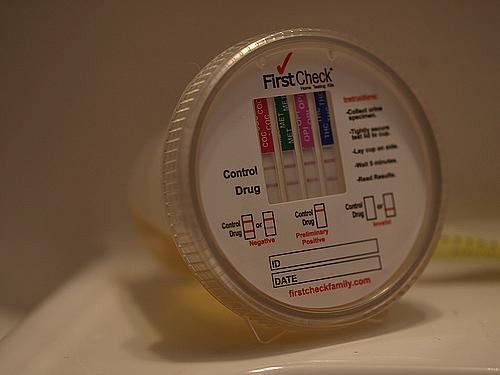Everybody Hurts: Should Doctors Be Randomly Drug Tested?

Some of you likely received a provocative email this week, asking whether physicians should be required to undergo mandatory drug testing.
The question was posed by Jamie Court, who heads Consumer Watchdog. He wrote:
It’s outrageous. A methamphetamine user convicted of a federal felony for drug dealing just won the right to treat patients again in one year. Pilots would be grounded for life. Lawyers would lose their license forever. Doctors that use and deal drugs, like Nathan Kuemmerle, face little discipline or deterrence. That has to change, and you can help today by calling for reform.
Court was responding to a series by Scott Glover and Lisa Girion in the Los Angeles Times: Legal drugs, deadly outcomes. Following on great reporting around the country on the rise in addictions to painkillers and the proliferation of pill mill pain clinics that feed these addictions, Glover and Girion decided to put hard numbers to the problem. They wrote:
Health and law enforcement officials seeking to curb the epidemic have focused on how OxyContin, Vicodin, Xanax and other potent pain and anxiety medications are obtained illegally, such as through pharmacy robberies or when teenagers raid their parents' medicine cabinets. Authorities have failed to recognize how often people overdose on medications prescribed for them by their doctors.
A Los Angeles Times investigation has found that in nearly half of the accidental deaths from prescription drugs in four Southern California counties, the deceased had a doctor's prescription for at least one drug that caused or contributed to the death. Reporters identified a total of 3,733 deaths from prescription drugs from 2006 through 2011 in Los Angeles, Orange, Ventura and San Diego counties.
To put that in perspective, that amounts to more than one death every day from drugs that a doctor prescribed. But here’s the (sort of) good news. Most of those deaths can be traced back to a very small group of doctors. Glover and Girion wrote:
In 1,762 of those cases — 47% — drugs for which the deceased had a prescription were the sole cause or a contributing cause of death.
A small cadre of doctors was associated with a disproportionate number of those fatal overdoses. Seventy-one — 0.1% of all practicing doctors in the four counties — wrote prescriptions for drugs that caused or contributed to 298 deaths. That is 17% of the total linked to doctors' prescriptions.
Each of those 71 physicians prescribed drugs to three or more patients who died.
An incredible amount of reporting by Glover and Girion went into writing those five sentences. There’s not some publicly accessible database that lets you look up deaths and then lists the prescription drugs that were connected to those deaths and then lists the doctors who prescribed those drugs. Making each of those links required days of document digging, data mining and, no doubt, many hours of knocking on the doors of people who didn’t want to open them.
And now what about Court’s proposed solution? He wrote:
Pilots must undergo mandatory random drug testing because they hold the lives of so many passengers in their hands. Physicians who operate on patients and are in a position to overprescribe or use narcotics themselves should undergo similar mandatory random drug tests.
And then he provided a link to a site that allows people to write the state lawmaker from their zip code. Civil libertarians would set their hair ablaze on the capitol steps to protest a measure like this. Plus, the physicians’ lobby is too powerful to ever allow mandatory drug testing for all doctors. Physicians who are caught abusing drugs themselves can be forced to undergo random testing and, in fact, are forced to do so in some cases, which is why they are caught reoffending.
The system is far from perfect, of course. But it’s unclear to me how random drug testing of all physicians would have saved the 3,000 plus people found by Glover and Girion to have died from prescription overdoses. Drug testing of the patients, maybe? That raises an entirely new set of questions and would go nowhere in the legislature.
Court’s other demand could gain more traction. I’ll write about that in my next post.
Image by Micah Baldwin via Flickr

